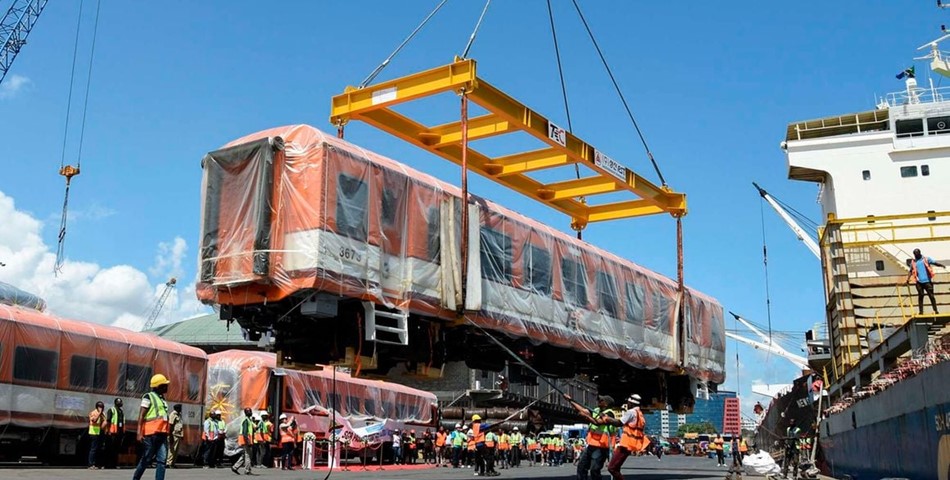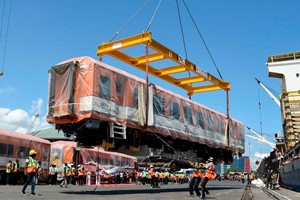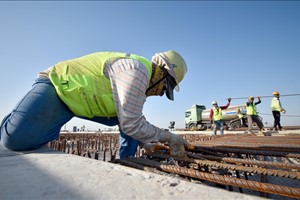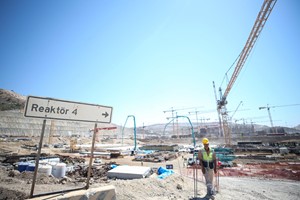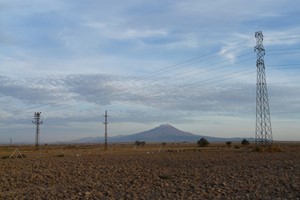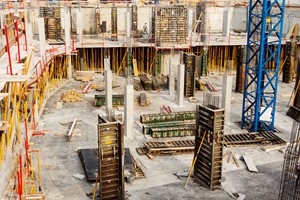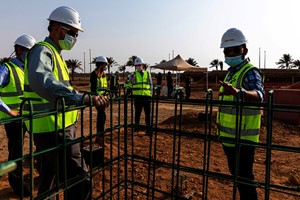Turkish construction company Yapi Merkezi has reported a $1.8 billion gap in funding for Tanzania’s flagship standard gauge railway project as it continues to facilitate Dodoma’s search for funding for the project across Europe.
Yapi Merkezi Vice-Chairperson Erdem Arioglu, who recently led Finance Minister Mwigulu Nchemba and a government delegation to Spain, Sweden and Poland to seek funding for the project, told The EastAfrican that the fundraising drive was a follow-up on various commitments totalling $2.2 billion towards the $10.4 billion project.
He denied that Yapi led the mission as they explored a Plan B — alternative financing to cover its own reported cash flow problems — but did so in their capacity as main contractor for the first four phases of the project.
He said about $1.8 billion was being sought to finance Lots 3 and 4 of the projects while $1.5 billion had already been secured for Lots 1 and 2 and $400 million for Lots 3 and 4.
The four lots cover 1,223 kilometres from the port of Dar es Salaam to the Isaka dry port, from where SGR links will be extended to Mwanza and Kigoma on the coasts of Lake Victoria and Lake Tanganyika respectively.
Elaborating on the Turkish firm’s own role in the latest government fundraising trip across Europe Mr Arioglu said: “As the facilitator of the SGR project financing, we were part of the visiting group for financing discussions that took place in Spain, Poland and Sweden. We participated in the meetings together with the Tanzanian governmental delegation to give support and assist both Tanzania… and the involved export credit agencies on the clarification of mainly technical issues.”
Mr Nchemba led the government delegation in the talks with officials of potential funders in the cited countries, which also covered bilateral cooperation in other sectors such as agriculture, poverty alleviation and trade.
Yapi Merkezi, in partnership with Portuguese firm Mota-Engil Africa, was initially in 2018 awarded Lots 1, 2 and 3 of the SGR project covering 1,090 kilometres from Dar es Salaam to Tabora, and in July 2022 entered into a separate $900 million agreement with Tanzania for the construction of Lot 4 from Tabora to Isaka (165 kilometres).
But in recent weeks the company has been involved in a widely publicised payment tug-of-war with its workers assigned to the project, which triggered fresh concerns over unforeseen project delays.
Asked about the current situation regarding the payment's standoff, Mr Arioglu said it involved just 10 percent of the total 15,000 workforce, being mainly Turkish personnel, and lasted a “very short period of time.”
“Currently, there is no problem,” he asserted.
Tanzania’s Finance Ministry spokesperson Benny Mwaipaja told The EastAfrican that Yapi Merkezi’s financial situation was “really none of our business” and the European tour was aimed at “looking for funding, not contractors.”
“It is difficult for the government to comment on the company’s internal issues because by contract they are the (railway) builders and our job is merely to pay them in accordance with work done,” Mr Mwaipaja said.
The ministry has remained non-committal on the presence of Yapi Merkezi representatives in Mr Nchemba’s entourage to Europe, avoiding confirmation or denial.
When asked over the phone to clarify directly about that and other matters related to the trip, Mr Nchemba quietly listened all the way through then told our reporter that he had dialled a “wrong number” and hung up.
Another senior finance ministry official, who was also part of the government delegation, told The EastAfrican that he “wasn’t sure” if there was a Yapi Merkezi representative on the team.
But Mr Arioglu named Standard Chartered as the lead arranging bank mandated to “close” the SGR project financing and said Export Credit Agencies in “several” European countries were also expected to take part in the financial structure.
On timelines for each of the four project lots that Yapi Merkezi is handling, he said Lots 1 and 2 were expected to be completed by early next year and Lots 3 and 4 in early 2026. The lots, by order of number, are at 98, 95, 67 and 17 percent completion status respectively, according to official reports.
Lot 5 of the project, covering 234 kilometres from Isaka to Mwanza and being handled by two Chinese firms, China Civil Engineering Construction and China Railway Construction Corporation, has reportedly reached 36 percent completion.
The African Development Bank (AfDB) has pledged $3.05 billion towards sponsoring the link from Tabora to Kigoma (Lot 6) and another planned stretch from Uvinza to Malagarasi to speed up the DRC connections (Lot 7).
Aside from the funding issue, Mr Arioglu cited other challenges that have caused “unexpected” delays in completing Yapi Merkezi’s slice of the project as “disruptive effects” of the Covid-19 pandemic and Russia-Ukraine war on supplies of project materials and “extensive” rainfall in some areas along the railway track.
“Environmental and Social Studies are also taking some time which is a requirement of the Project Finance Package,” he said.
Once completed and fully operational, the Tanzanian SGR is expected to build stronger regional trade ties via the Central Corridor by significantly reducing cargo transportation costs and times between Dar es Salaam and Burundi, Rwanda and the Democratic Republic of Congo.
Costs are projected to drop from up to $15,000 to about $4,000 per tonne and travel times from up to 30 days by road to 36 hours maximum by rail.
Asked about Yapi Merkezi’s envisaged Uganda SGR project, Mr Arioglu said discussions with Ugandan authorities were “at an advanced stage for a potential EPC + F contract in relation to the Malaba–Kampala section.”
“We are hoping to sign before the end of the year. The company is also working on the bankable feasibility and the design of the Kampala–Kasese section under an exclusive Memorandum of Understanding with the Ugandan Ministry of Transport,” Mr Arioglu said.




